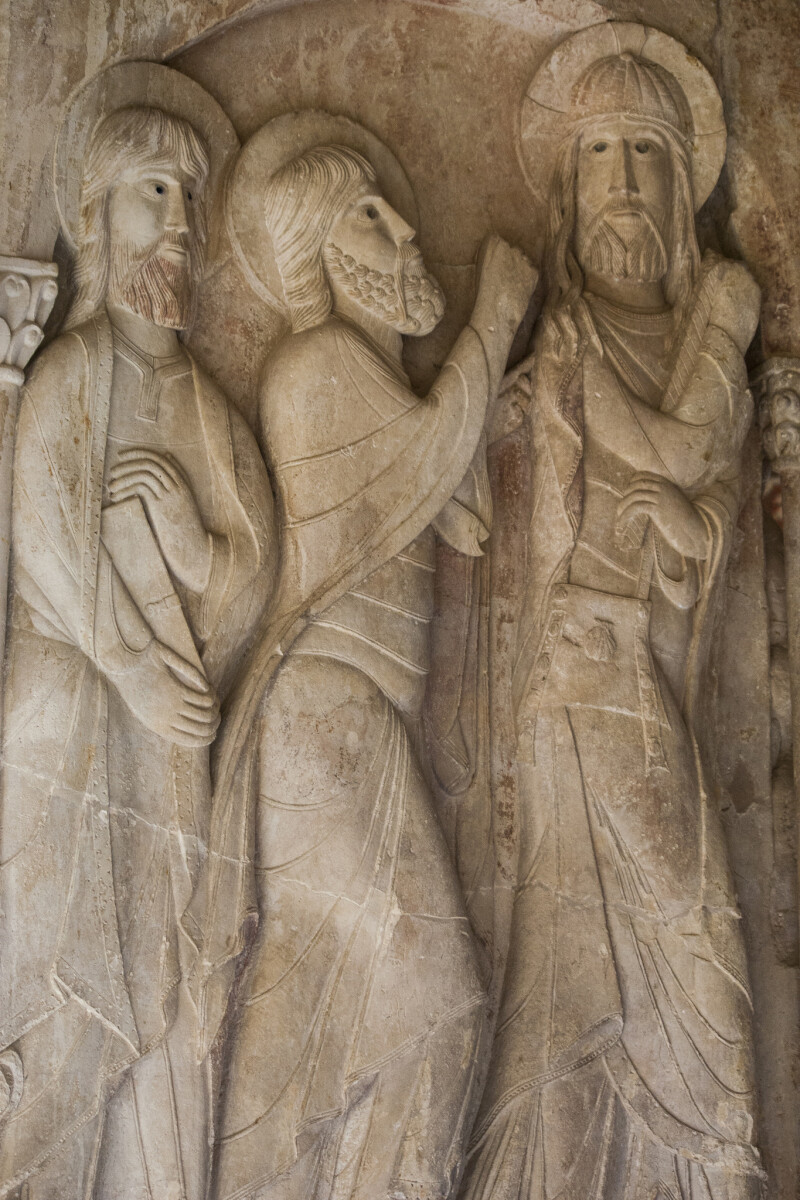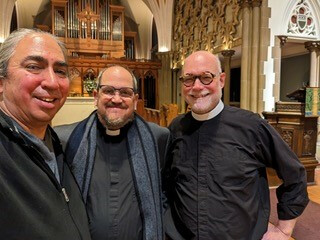Ask a Theologian: Reconciliation

Dear Theologian,
After seeing a movie of the Passion of the Lord, I need to ask: Why did Jesus have to undergo such a horrible ordeal? And what does it mean to say that Jesus suffered and died for our sins?
Disturbed Moviegoer
Dear Moviegoer,
The Mel Gibson film is a graphic and relentless depiction of Jesus' suffering. For those of us who confess him as Lord and Christ, it may well be the occasion to reflect deeply on our own understanding of the Paschal Mystery.
The passion, death, and resurrection of Jesus is the very heart and center of our life of faith. It is what we remember and participate in every time we celebrate the Holy Eucharist. Yet it remains a mystery that we cannot penetrate with our rational mind.
The disciples of Jesus could not at first find any meaning in what happened to him at the end. Only in the light of his resurrection were they able—by searching the Hebrew scriptures—to interpret his suffering and death as something foretold by the prophets, and hence as part of God’s eternal plan of salvation.
This is brought out simply and movingly in the Emmaus story in Luke’s gospel (Lk 24:13-35). In that passage, the Stranger on the road (the risen Lord) says to the two disciples: "How slow of heart [you are] to believe all that the prophets have declared! Was it not necessary that the Messiah should suffer these things and then enter into his glory?"
"Was it not necessary?" Apparently it was, but how can we begin to understand this? If this terrible fate was, indeed, included in God’s intention of “saving” mankind, how does it relate to our salvation?
In the New Testament as a whole, Christ’s death on the cross is regarded as the focal point of God’s action of "reconciling" sinful humanity to Himself. Paul says,
"… while we were enemies, we were reconciled to God by the death of his Son." (Rom 5:10) And again, "God ... reconciled us to himself through Christ, and has given us the ministry of reconciliation; that is, in Christ God was reconciling the world to himself, not counting their trespasses against them, and entrusting the message of reconciliation to us." (2 Cor 5:18-19)
Like most, if not all, theological words, "reconciliation" has its literal meaning in the world of ordinary human experience. What does it mean to reconcile, in ordinary usage? It means to bring back into a proper relationship persons or things which have become incompatible. When the word is used theologically, it refers to the mystery of how the estrangement of human beings from God is overcome.
It presupposes the negative state of estrangement or "alienation"––being separated or cut off from that to which one belongs. A vivid image of this is given in the story of the first human beings, after the Fall, hiding from God among the trees. (Gen 3) They were afraid and ashamed, unwilling to interact with the One to whom they belonged.
Christian faith affirms that the alienation of human beings from God has been overcome, in principle, by the life, death and resurrection of Jesus of Nazareth. But how are we to understand this? What difference did/does Christ make? What is it about his existence in our world that re-unites us with the God from whom we are alienated?
In the Hebrew scriptures, God repeatedly urges the people of Israel to "turn," that is, turn back toward the God of the covenant. (Isa 31:6, 45:22; Jer 15:19; Ezek 18:32) God also complains about the unsteadiness and stubborn refusal of his people. (Hos 6:4; Jer 5:3) The estrangement that keeps happening is caused by the people’s lack of a consistent response to God’s steady love.
This is important for how we interpret the "reconciling" quality of Jesus' life, death, and resurrection. There is no obstacle to reconciliation from God’s side, but only from the side of sinful and alienated human beings. The question then becomes, How does Christ change the human side of the relationship?
Is it only his suffering and death that matter? But his death is unintelligible when isolated from his ministry and teaching. It is surely wrong to think that Jesus came only to suffer and die. It is wrong to think that it was only his torture and violent death—accepted willingly—that redeemed mankind. Surely it was his entire existence as "child" or "servant" of God that mattered.
Christ himself was "turned" utterly "toward God" in his living and finally in his dying. The Passion was the supreme test of Jesus' obedience to the Father. It was the culmination of a life that belonged wholly to God.
"He emptied himself, taking the form of a slave, being born in human likeness. And being found in human form, he humbled himself and became obedient to the point of death—even death on a cross." (Phil 2:7-8) "Although he was a Son, he learned obedience through what he suffered." (Heb 5:8)
Jesus' suffering and death was the outcome of a life lived in utter faithfulness to God. His offer of forgiveness and reconciliation with God was misunderstood and rejected by human beings. This is poignantly expressed in Jesus’ lament over Jerusalem: "How often have I desired to gather your children together as a hen gathers her brood under her wings, and you were not willing!" (Lk 13:34)
Why did Christ suffer? We could say that we human beings—represented by some Jewish leaders and the Roman governor at the time—rejected the revelation of God that was presented to us in the person, ministry and teaching of Jesus of Nazareth. If we regard Jesus as the divine Love incarnate, then our human sinfulness rejected that Love and, indeed, crucified it.
If that were the end of the story, we might not think of reconciliation between human beings and God. But the Cross is not the final word. The Resurrection of Jesus is the triumphant re-affirmation of divine Love, despite the worst that human beings can do.
This is suffering Love, which overcomes evil with good. It is finally victorious by “absorbing” all the malice of human beings and repaying it with infinite mercy. The first word that the risen Lord speaks to the disciples who had abandoned him is "Shalom! Peace!" (Jn 20:19) This is the word which he continues to speak to each of us, whenever we turn again toward him.
In Christ,
The Theologian
The Rev. Dr. Wayne L. Fehr wrote a column for a previous version of the diocesan newsletter called Ask a Theologian. He answered questions from ordinary Christians trying to make sense of their faith. Now he's back with a monthly column once again. You can find and purchase his book on Tracing the Contours of Faith: Christian Theology for Questioners here.


 Mark with Former Asst. Secretary of the Federal Bureau of Indian Affairs Ada Deer
Mark with Former Asst. Secretary of the Federal Bureau of Indian Affairs Ada Deer Mark pictured with Fr. Joel and Fr. Jonathan
Mark pictured with Fr. Joel and Fr. Jonathan